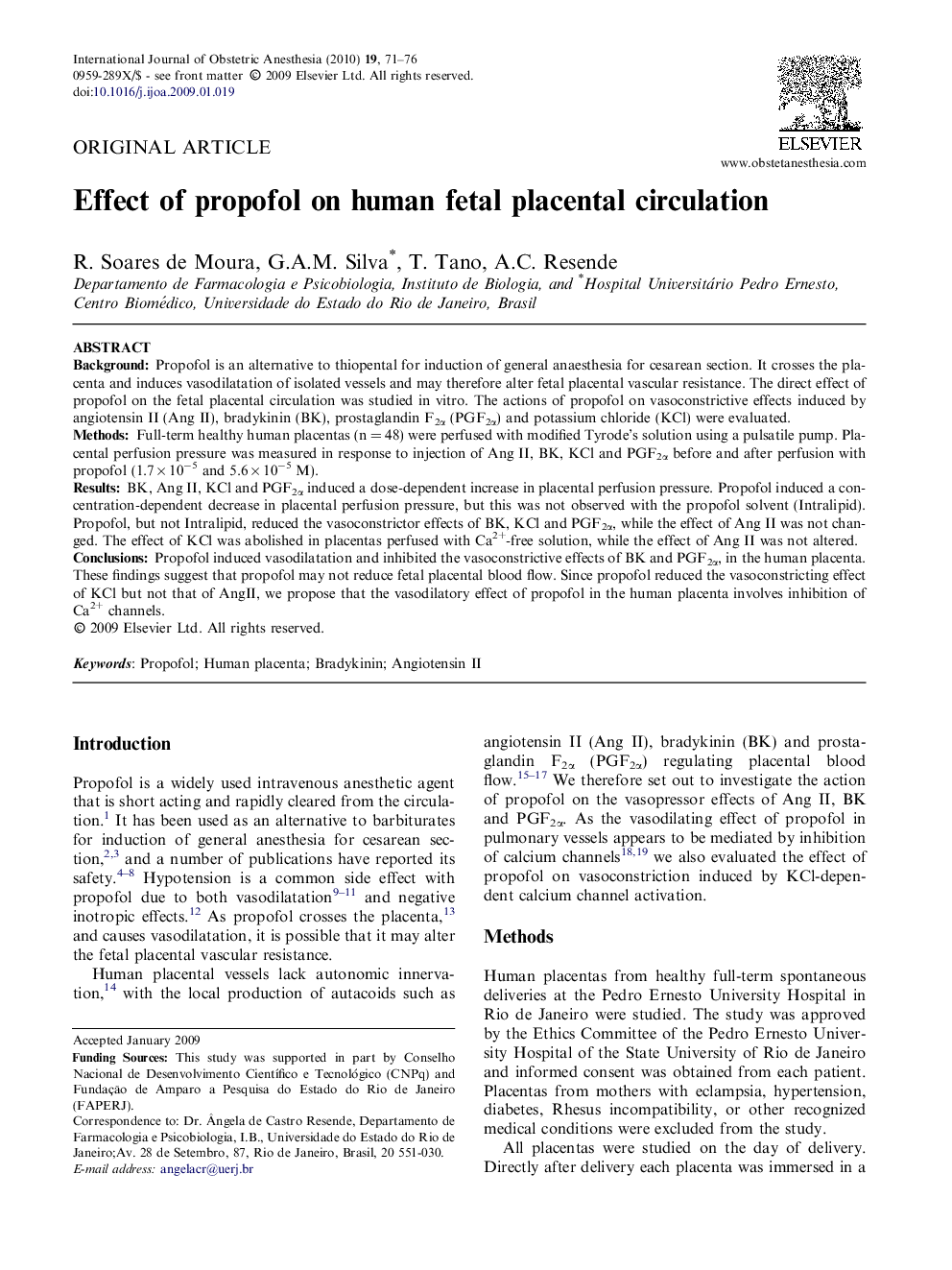| Article ID | Journal | Published Year | Pages | File Type |
|---|---|---|---|---|
| 2758290 | International Journal of Obstetric Anesthesia | 2010 | 6 Pages |
BackgroundPropofol is an alternative to thiopental for induction of general anaesthesia for cesarean section. It crosses the placenta and induces vasodilatation of isolated vessels and may therefore alter fetal placental vascular resistance. The direct effect of propofol on the fetal placental circulation was studied in vitro. The actions of propofol on vasoconstrictive effects induced by angiotensin II (Ang II), bradykinin (BK), prostaglandin F2α (PGF2α) and potassium chloride (KCl) were evaluated.MethodsFull-term healthy human placentas (n = 48) were perfused with modified Tyrode’s solution using a pulsatile pump. Placental perfusion pressure was measured in response to injection of Ang II, BK, KCl and PGF2α before and after perfusion with propofol (1.7 × 10−5 and 5.6 × 10−5 M).ResultsBK, Ang II, KCl and PGF2α induced a dose-dependent increase in placental perfusion pressure. Propofol induced a concentration-dependent decrease in placental perfusion pressure, but this was not observed with the propofol solvent (Intralipid). Propofol, but not Intralipid, reduced the vasoconstrictor effects of BK, KCl and PGF2α, while the effect of Ang II was not changed. The effect of KCl was abolished in placentas perfused with Ca2+-free solution, while the effect of Ang II was not altered.ConclusionsPropofol induced vasodilatation and inhibited the vasoconstrictive effects of BK and PGF2α, in the human placenta. These findings suggest that propofol may not reduce fetal placental blood flow. Since propofol reduced the vasoconstricting effect of KCl but not that of AngII, we propose that the vasodilatory effect of propofol in the human placenta involves inhibition of Ca2+ channels.
